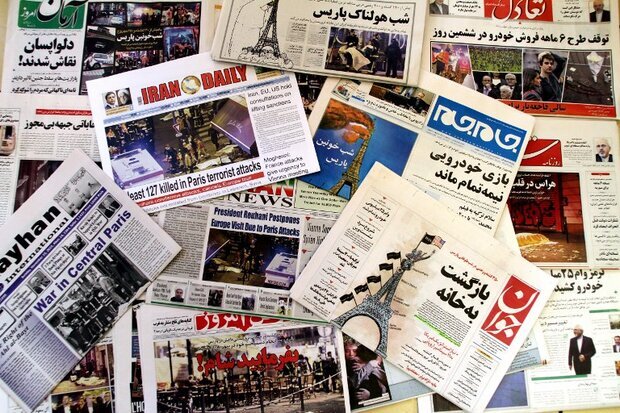They kill children through sanctions and then cry for them!

In its editorial, Siasat-e-Rooz pointed to the anti-Iran propaganda by the Western media outlets under the pretext of International Children’s Day. They wrote: The child-friendly claims of foreign media are ridiculous, because these claimants of human rights have not pointed to the pain that the Western sanctions have inflicted on Iranian children suffering from rare diseases.
They have not made any mention of the report by the UN Special Rapporteur on unilateral coercive measures, Alena Douhan, regarding the consequences of anti-Iran sanctions and failure to provide medicine and medical equipment for them, especially those children suffering from rare diseases. They have refused to mention her report that failure to meet medical needs of such person is officially considered a crime against humanity. The sanctions target the EB and thalassemia children that can be officially called a genocide. The surprising fact is that these media outlets and their interviewees who claim support for child labors in Iran suggest intensified sanctions as a solution to relieve the pains of child labors.
Iran: Iran won’t accept change of borders
In a note, the Iran newspaper addressed Erdogan’s visit to Baku and his anti-Iran stance on the Zangzor Corridor and said: During last year’s visit of the president of Turkey to Tehran and his meeting with the Supreme Leader, an important part of the Leader’s statements was dedicated to the principled approach of the Islamic Republic of Iran toward the Caucasus region. Expressing satisfaction with the return of the Karabakh region to the territory of the Republic of Azerbaijan, the Leader said: “If there is a policy of blocking the border between Iran and Armenia, the Islamic Republic will oppose it, because this border is a communication route that has been thousands of years old.” So the foreign policy makers of Ankara should not forget that the Islamic Republic, as an important and influential actor in the region by having the highest level of power components, has the possibility to insist on its principled approach in the Caucasus region. This dispute can have serious and great negative effect on the relationship between Iran and Turkey as two historical friends.
Javan: Sitting government’s big step in Latin America
In a commentary, Javan discussed Raisi’s visit to Latin America. The paper wrote: American officials are very worried about the re-formation of the leftist governments in Latin America and are trying to prevent emergence of anti-U.S. policies in Brazil, Cuba, Venezuela, Argentina and Colombia by sending diplomatic signals. But the actors in Latin America have shown that they have high motivation compared to many countries under the domination of the United States in view of the sanctions policies by the West. Now, the will of the countries under U.S. embargo in the world is to use their potential and actual capacities and by forming an alliance in view of their combined capacities, they can create a structure to counter America’s excesses, because they have understood that if they act collectively, there will be an opportunity to break the U.S. sanctions. Today what China, Brazil, Indonesia, Russia, etc. are doing to reduce “the power of the dollar” and pursuing alternative currency is in line with such a strategy. This is the danger that Americans have acknowledged as a global reality. U.S. Treasury Secretary Janet Yellen in a meeting with Congress on Tuesday admitted that the U.S. should wait for the reduction of the use of the dollar in the world. She said the countries in the world are looking for alternative currencies.
Ham Mihan: Is Iran willing to make an interim agreement?
In an analysis, Ham Mihan discussed possible interim nuclear agreement. It wrote: If Iran expresses its desire for an interim agreement, it can be said that it has made a U-turn because the interim agreement was against Iran’s stated policy in the nuclear negotiations and shows Iran’s desire to improve relations with Saudi Arabia and to acquire some of its frozen assets before the U.S. presidential election. Just last week Iran clearly declared that it is not looking for an interim agreement and is only negotiating within the JCPOA framework to revitalize the 2015 agreement. Of course, there is a reason for this declaration, because the Parliament’s strategic law has determined the requirements for Iran to return to its JCPOA obligations, and the interim agreement is considered a violation of the law.
However, some analysts have argued that the statements by the Leader in presence of the officials in charge of the country’s nuclear industry that it is possible to make a deal if the nuclear industry infrastructure remains intact can show the desire to have some kind of cooperation to reach an interim agreement and should not be considered in conflict with the strategic law of Parliament.
